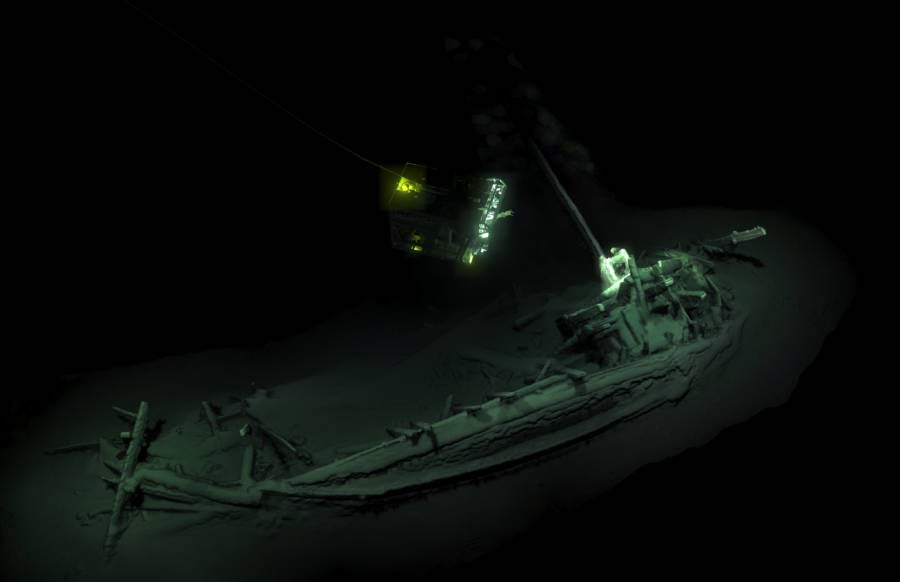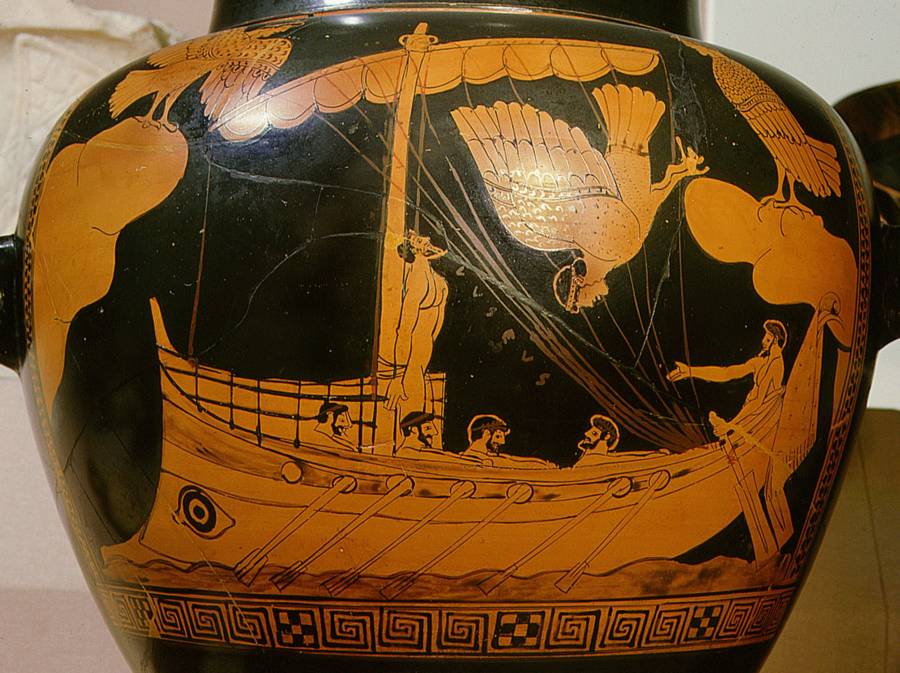
What we have in the Black Sea i extraordinary and it will allow us to reconstruct ship types over all our history. After all, just what do we know of the ship building craft circa 1200 AD and how did it evolve.
Much more interesting is that trade shipping existed for at least six thousand years and potentially even ten thousand years. An extensive early society existed in the Danubian region in particular before ultimately overwhelmed by horse warriors. This region had reason to trade as far afield as Egypt. Thus the Western Black Sea should be a treasure trove of lost shipping and some may well be even buried in the mud.
We need to collect wood samples around the mouth of the Danube to establish how old the clear bottom actually is..
2,400-Year-Old Shipwreck Believed To Be The World’s Oldest Was Just Discovered Intact At The Bottom Of The Black Sea
Published October 23, 2018
https://allthatsinteresting.com/shipwreck-black-sea
Evidence of a similar vessel appears on an ancient Greek
vase featuring the infamous Homeric character, Odysseus, tied to its
mass.

AFP PHOTO/Black Sea MAP/EEF ExpeditionsEnhanced 3D imaging of the remains of the 2,400-year-old shipwreck at the bottom of the Black Sea.
A team of European researchers has found a treasure trove of ancient
shipwrecks at the bottom of the Black Sea, and one of them is now
believed to be the world’s oldest intact shipwreck.
The 75-foot-long, almost completely preserved shipwreck was
discovered 1.2 miles below the surface of the Black Sea. Researchers posit that it has laid there untouched for over 2,400 years.
The ship was discovered
by a team of researchers with the Black Sea Maritime Archaeology
Project as a part of their three-year-long mission to survey the floor
of the Black Sea and garner information about prehistoric sea level
changes.
“It’s like another world,” Helen Farr, a researcher on the
expedition, reported. “It’s when the ROV [remote operated vehicle] drops
down through the water column and you see this ship appear in the light
at the bottom so perfectly preserved it feels like you step back in
time.”
The team credits the incredible condition of the ship to the anoxic
waters of the Black Sea — which is water that is oxygen-free. The ship
is so deep underwater that the oxygen levels are too low to sustain any
marine life so no animals have disturbed it either and the ship is at a
depth too deep to come in regular contact with divers.
Divers exploring the shipwreck at the bottom of the Black Sea.
After more than two millennia at rest at the bottom of the Black Sea,
the ship’s rudder, rowing benches, and the contents inside its hold all
remain in place.
“A ship surviving intact from the classical world, lying in over 2km
of water, is something that I would have never believed possible,”
Professor Jon Adams, the principal investigator with the project, said
in a statement. “This will change our understanding of shipbuilding and
seafaring in the ancient world.”
The researchers believe that the ship belonged to the ancient Greeks
and was used as a trading vessel. However, this type of vessel is unique
and has only been seen before “on the side of ancient Greek pottery
such as the ‘Siren Vase’ in the British Museum,” according to the
researchers.

Werner Forman/UIG via Getty ImagesThe ‘Siren Vase’ at the British Museum.
The Siren Vase’s origins can be traced back to 480 BC and it depicts
legendary Homer character Odysseus bound to the mast of his ship in
order to stop himself from falling victim to the men-killing songs of
the three mythical Sirens that surround him. The ship is eerily similar
to that found at the bottom of the Black Sea.
The team plans to leave the ship undisturbed in its final resting
place but did remove a small piece of it so that they can carbon-date
the ship’s exact age.
While it is considered the oldest intact shipwreck, the find is but
one of dozens of prehistoric ruins the team has found at the bottom of
the Black Sea. Their finds range from a “17th century Cossack raiding
fleet, through Roman trading vessels, complete with amphorae, to a
complete ship from the classical period.”
The landlocked Black Sea has been a passageway for ships and sailors
for thousands of years, and one can only wonder what other treasures
remain undiscovered beneath its surface.
No comments:
Post a Comment